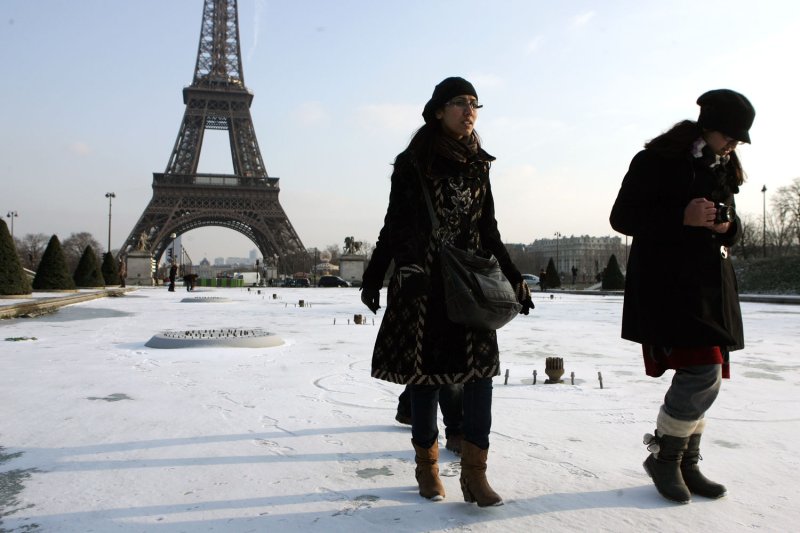Tourists walk on the frozen waters of the Trocadero fountain in Paris facing the Eiffel Tower, in Paris, Feb. 8, 2012. A cold snap has been sweeping across Europe with sub-zero temperatures, claiming hundreds of lives. UPI/Eco Clement |
License Photo
BELGRADE, Serbia, Feb. 12 (UPI) -- The European death toll from winter's snow and brutal cold mounted Sunday after an avalanche in Kosovo killed at least seven people, officials said.
Twelve houses were destroyed in the village of Restilica Saturday afternoon and rescue crews were searching Sunday for three missing people, Radio B92 reported from Belgrade, Serbia.
Nearly 500 people have been killed by the cold and snow that stretches from Spain eastward some 2,500 miles to Moscow, Accuweather.com said. That's the approximate distance between New York and Los Angeles, the forecast agency said.
Romanian officials said eight known deaths Saturday brought the national toll to 65 as crews attempted to reach villages cut off by walls of snow, Euronews.net reported. Russia's Itar-Tass news agency said 53 Romanian villages were isolated under more than 15 feet of snow.
Italy's Adriatic coast was lashed with 80 mph winds Saturday, injuring at least 10 people and delaying or canceling flights out of Rome, the report said.
The Ukraine government opened emergency shelters for some 14,000 homeless people as temperatures remained below freezing, CNN said. Parts of the Danube River have frozen over for the first time in more than 20 years, affecting shipping lines and water supplies.
France has reported 14 weather-related deaths in the past 12 days, the reports said.
Accuweather said the severe cold will remain across eastern and southeastern Europe for several more days.















